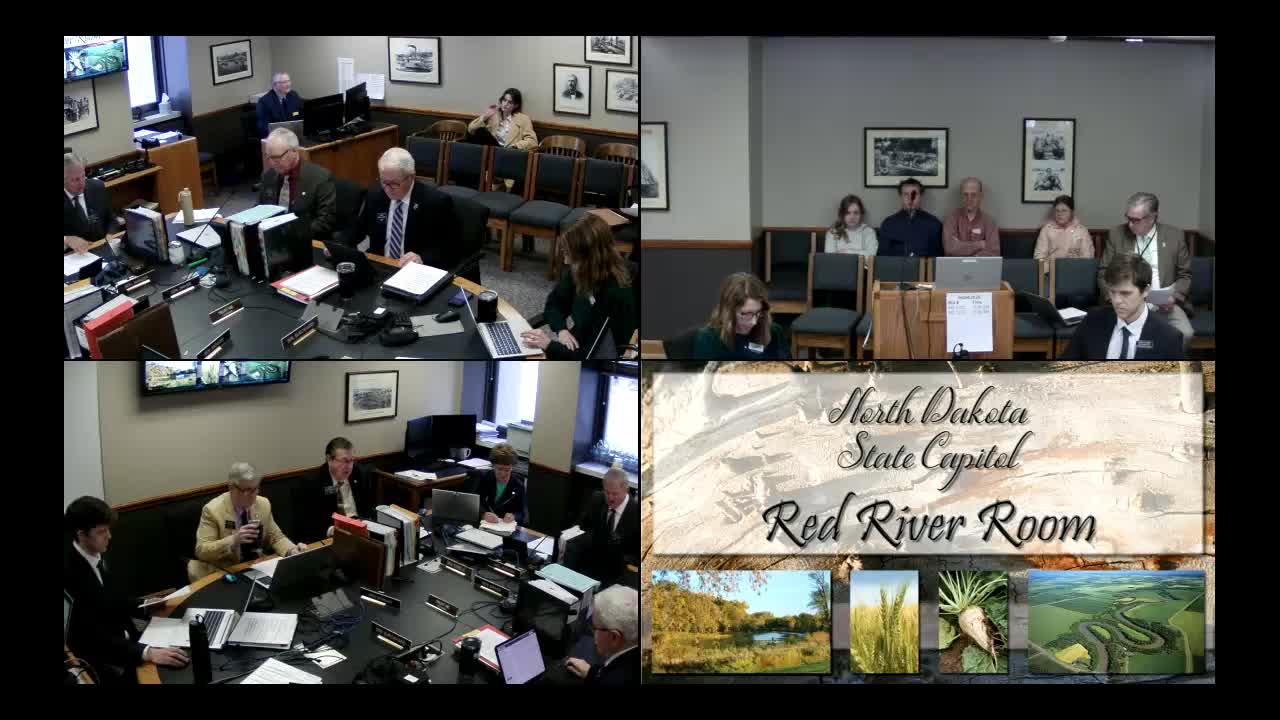Bill to limit direct China holdings in legacy fund draws technical questions from investment office
Get AI-powered insights, summaries, and transcripts
Subscribe
Summary
Representative Bernie Satrim (R‑District 12) introduced House Bill 13‑30, asking the committee to require divestment of direct state holdings in companies domiciled in China and to add limited authority for in‑state legacy fund investments.
Representative Bernie Satrim (R‑District 12) introduced House Bill 13‑30 to the Government Operations Division committee, saying the measure would require divestment of direct state holdings in companies domiciled in China and encourage additional in‑state investment from the Legacy Fund.
Nut graf: The Retirement and Investment Office (RIO) staff told lawmakers the bill, as drafted, focuses on direct public securities with limited market exposure but raises practical issues about commingled funds, legal prudence and how the State Investment Board (SIB) would implement divestment without unduly reducing expected portfolio returns.
Satrim opened by describing past efforts to avoid investments he said could support human rights abuses or foreign adversaries. “We were invested in [companies] that spied on the religious activity of the Uyghur people,” Representative Bernie Satrim said. He framed the bill as “a pathway to go forward to divest” and said he prefers investing in North Dakota businesses when possible.
Jody Smith, interim executive director of the Retirement and Investment Office, outlined how the bill changed during the House process and what RIO staff negotiated. Smith said earlier versions would have required selling roughly $6,000,000,000 worth of holdings but that committee work narrowed the draft to direct investments totaling about $22,000,000. She also clarified that the fund’s commingled holdings total far more: the legacy fund’s broader portfolio is on the order of tens of billions (she cited $24,000,000,000 for the full portfolio and roughly $3,100,000,000 for a referenced legacy fund balance; commingled holdings within that were described as approximately $640,000,000).
Smith explained the bill includes language invoking the “prudent investor rule,” which recognizes that avoiding certain investments may reduce expected returns. “By divesting from our exposure in China would mean that essentially we're leaving money on the table,” she said, noting recent returns tied to Chinese exposure.
Scott Anderson, chief investment officer at RIO, described the practical implications of codifying exclusions. He said RIO uses asset allocation and third‑party managers to balance return and risk across the entire portfolio, and that excluding a major country or category can raise risk or lower return if not offset by other investments. “When we underwrite an investment in the legacy fund ... the return on the investment would have to offset that diversification cost,” Anderson said.
Committee members asked detailed implementation questions: how “direct investment” is defined, whether the bill would force sales of holdings in commingled vehicles, how RIO would determine whether an investment is “beneficial to the state,” and whether the statute should single out China or use a broader category such as “foreign adversaries.” Smith and Anderson repeatedly said the bill as drafted targets separately managed direct public securities and that commingled funds do not disclose underlying holdings the same way.
Discussion ended without a committee vote. Committee members and RIO staff agreed to draft clarified amendment language: senators requested adding an explicit financial‑return standard to any “beneficial to the state” language and asked legislative counsel to propose specific text. The committee indicated it will work with RIO on amendment language and return to the bill at a future meeting.
Ending: The committee closed the record on testimony and directed staff to work with RIO and sponsors on amendment language addressing the “may/shall” drafting choices, the prudent investor exception, and clearer definitions for “China company” and “direct investment.”
